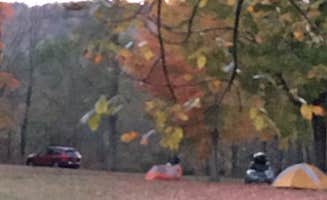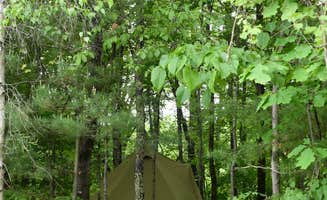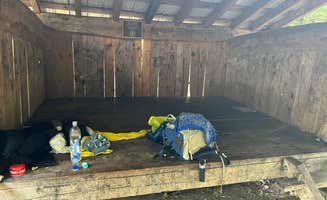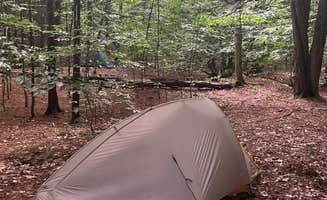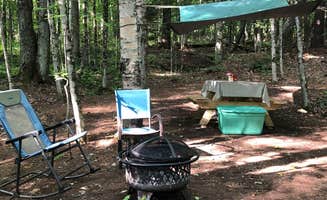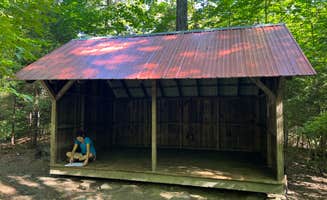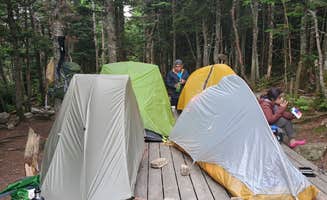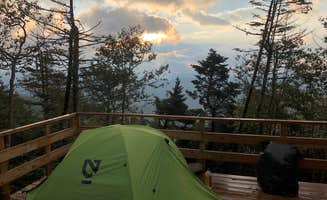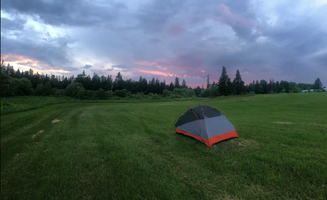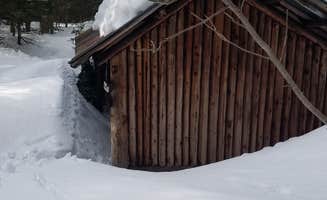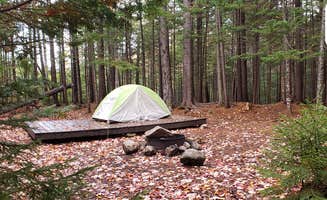Tent campsites near Piermont, New Hampshire range from primitive backcountry sites to established campgrounds with amenities. Located within driving distance of both the White Mountain National Forest and the Connecticut River Valley, Piermont offers access to diverse terrain ranging from 400 to 4,000 feet in elevation. Winter temperatures frequently drop below freezing from November through March, while summer camping conditions typically reach 70-85°F during the day.
What to do
Climb Mount Cardigan: At Cardigan Campsites, tent campers have a strategic base for summiting this popular peak. "Great spot to spend the night before a climb of Mt. Cardigan! The climb is challenging but shouldn't take too long. Great fire tower views at the top too!" notes Madison G.
Rock climbing at Rumney: The AAC Rattlesnake Campground serves climbers visiting the nearby Rumney crags. "I started climbing at Rumney about a decade before this campground was developed, and man, were we overdue for one! Maintained by the American Alpine Club, pretty much all the campers here are rock climbers," shares Les R.
Hiking to remote viewpoints: From Guyot Shelter, hikers can access spectacular summit views. "We got to the site, claimed our platform and hiked over to West Bond to catch a beautiful sunset," writes Hollie G. The shelter sits at 4,360 feet elevation, providing access to multiple 4,000-foot peaks.
What campers like
Secluded tent platforms: Baker Rocks offers well-designed tent sites. "The tent sites are within the wooded area around the property and felt very secluded. The site had a large tent platform they could fit multiple tents, a brand new picnic table, a fire ring (with a free bundle of firewood), two chairs by the fire ring, and even a few strings of solar lights around the camp area," explains Justin P.
Scenic shelter locations: The Moose Mountain Backcountry Shelter provides a unique amenity. "The shelter did stand out with a bench overlooking a clearing in the brush with a view which was a great place to enjoy my freeze dried dinner," reports Justin P.
Proximity to water features: Baker Rocks provides river access for campers. "Around the campground there was a little beach along the Baker river. I only caught a few minnows when fishing but that may have been more to do with the angler. Along another bend of the river were two chairs for taking in the scenery," notes Justin P.
What you should know
Limited water availability: Velvet Rocks Shelter and similar backcountry sites often have seasonal water sources. "The water source here was dry during my trip which was expected during the drought (August 2022)," reports Justin P.
Bear safety requirements: Guyot Shelter provides food storage. "Bear box located at a communal 'cooking area' and cold spring water located at the site," notes Hollie G. Other sites like Velvet Rocks specifically note "There was no bear box onsite," requiring hikers to bring alternative food protection.
Platform limitations: Some sites only accommodate certain tent types. Sean F. notes about Guyot Shelter: "No space for non-free standing tents. Quite a hike dropping down from the main trail to the campsite, 15-20 min straight up to hike out in the morning."
Tips for camping with families
Glamping options: Dugout Hideaway @ Granny Clark Brook is a recent addition to the region's camping inventory. While new, this is noted as a reservable site that allows alcohol, pets, and has toilets and picnic tables.
Choose tent sites with amenities: Baker Rocks offers family-friendly features. "Our family of 4 visited Baker Rocks during a very rainy week and still had an amazing time. The campsites are private and spacious, the property is large and beautiful, close to the river. We stayed 2 nights in the double bell tent with two clean full size beds and a 3rd night in the yurt," reports April W.
Consider wildlife encounters: Baker Rocks offers unique wildlife experiences. "They even have animals to visit like bunnies and goats (far away from the campsites). Do bring bug spray, the mosquitoes at certain times of day were aggressive, as to be expected," adds April W.
Tips from RVers
Seek established campgrounds: Most tent campsites near Piermont offer limited or no RV access. For RV camping, consider established sites further from the Appalachian Trail corridor.
Consider tent-only alternatives: Kinsman Pond Shelter and similar backcountry sites require hiking in. "The hike in isn't easy especially considering you'll need to carry all your gear in to stay," warns Ryan M., making these locations unsuitable for RV camping.
Backcountry roads: Access to many dispersed camping areas involves narrow, unpaved forest roads unsuitable for larger vehicles. Stick to established campgrounds with drive-in access when traveling with an RV.



